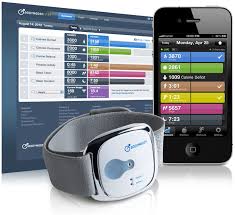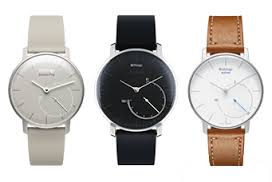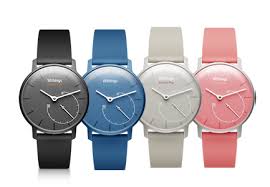Does wearing a fitness device decrease your chance of losing weight? That is what the news media is reporting based on a study in the Journal of the American Medical Association (referenced below).
But lets look deeper into the study:
The study followed two groups of people – young, mainly. The first six months they all together in a “behavioral weight loss intervention.”
1. Standard In-Person Behavioral Weight Control Program (SBWP): Subjects in this group will receive our standard behavioral weight control program that is delivered in an in person group-based format. At month 7 subjects will also be given access to a study website to monitor eating and activity behaviors, and to have electronic access to standardized intervention materials. At month 7 subjects will also receive targeted study-related text messages that otherwise would have been provided in paper format.
2. Enhanced Weight Loss Intervention (EWLI): Subjects in this group will participate in a weight loss intervention that includes technology enhancements. These enhancements will include the addition of intervention specific targeted and tailored text messaging and the BodyMedia Fit System® beginning at Month 7. At month 7 subjects in EWLI will also receive the same targeted study-related text messages provided to SBWP that otherwise would have been provided in paper format.
But here is a key: Most of the people wore the device less than once a week. Does a device help you measure if it is kept in the drawer?
So you have two groups- one that is writing down what they eat, and what they do, and another that doesn’t. It isn’t that there is magic, a fitness tracker doesn’t track if you don’t wear it.
The device they used was an armband type by Body Media System:
The device is cumbersome, bulky, and worn on the upper arm. I was involved in testing this device over ten years ago. Ten years ago we found that it was uncomfortable to wear for most of our patients.
But today there are better options. My current favorite option is the Withing’s Watch. I have used all of the trackers including those in the Apple Watch, Nike Fuelband, and Fitbit. But I like Withings because it integrates well with my Iphone, is a good looking watch, and I don’t have to recharge it daily (the battery lasts eight months, and I hate carrying extra wires when I travel to recharge a device).
Finally, these devices underestimate the calories people consume. If you think you are eating 4 ounces of steak but eating 8 ounces instead you are taking in twice as many calories.
My advice: find a watch you like. Measure your activity. Find a buddy and compete. Get out there and walk.
I am not paid for my endorsement of Withings – I really like it and use it and recommend both the watch and scale to my patients. For my patients who have blood pressure issues I recommend their blood pressure unit.
REFERENCE:
Effect of Wearable Technology Combined With a Lifestyle Intervention on Long-term Weight Loss
The IDEA Randomized Clinical Trial.John M. Jakicic, PhD1; Kelliann K. Davis, PhD1; Renee J. Rogers, PhD1; Wendy C. King, PhD2; Marsha D. Marcus, PhD3; Diane Helsel, PhD, RD4; Amy D. Rickman, PhD, RD, LDN5; Abdus S. Wahed, PhD6; Steven H. Belle, PhD7
[+] Author Affiliations
JAMA. 2016;316(11):1161-1171. doi:10.1001/jama.2016.12858.



